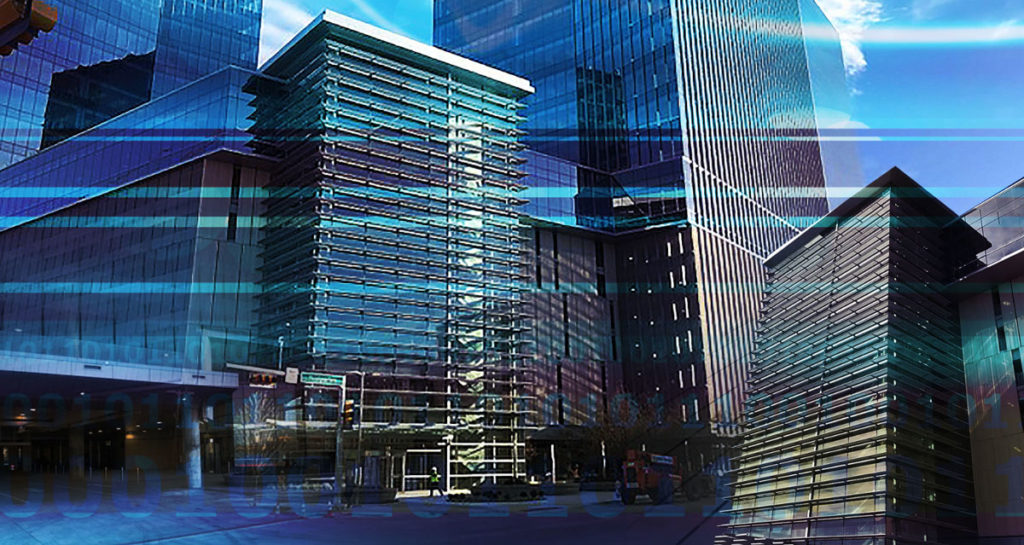Digital transformation is the disruption of business and organizational activities, processes, competencies, and models to leverage change. This change—and the adoption of new and emerging technologies—is not an easy feat.
According to Zion Market Research, www.zionmarketresearch.com, Maharashtra, India, the global digital transformation market is expected to grow 19.2% between 2016 and 2021, with growing markets in the areas of AR (augmented reality), VR (virtual reality), and more.
Perhaps one of the biggest challenges as it relates to digital transformation in the construction industry is enabling a culture of change across the business and all its stakeholders.
In the construction industry, this requires transformation across the entire project team—from firms providing design services to specialty trades providing subcontractoring services on the project. Today, many construction companies are identifying how to change in order to build complex structures in a tighter timeframe.
As one example, IWR North America, www.iwr-na.com, St. Louis, a specialty contractor that focuses on building enclosures, completed Liberty Mutual Insurance’s new $325 million regional hub, which opened last November to deliver nearly one million-sq.ft., of space specifically engineered to connect thousands more employees in the next few years.
The schematic was still in development when IWR was awarded the construction project so there was a lot of collaboration on the design and the pricing throughout, explains Mike Smalley, preconstruction manager, IWR North America.
Managing more than 50 field workers, IWR installed 30,000-sq.ft., of geometrically complex aluminum composite panels on the community center, garage canopies, exterior walls, interior stairwells, and main lobby soffits. Also, roughly 54,000-sq.ft., of a custom designed, engineered, and fabricated stainless steel woven mesh was installed in the parking garage by IWR. IWR’s detailed scope was fast tracked and took eight months to complete.
In order to enable this, IWR used multiple advanced technology tools, and methods for field verification, layout, and install of the stainless steel tensioned mesh cladding at the parking garage. The system installed required precise dimensions of substructure steel placement and allowable tolerances were extremely minimal when compared to industry standards. IWR used scanning technology and photometric registration of the garage structure to develop point-cloud data. The scan data was then uploaded into a computer software, which was used to generate cut-sections, plan details, and elevations of the garage structure. This information was then converted into AutoCAD format where it was overlaid with cladding system and developed into a set of documents used during installation.
… the global digital transformation market is expected to grow
19.2% between 2016 and 2021 …
Smalley explains one of the biggest benefits was, “knowing where the as-built structure was and being able to compare it to where it needed to be.”
He adds another benefit is being able to take such precise measurements in such a small, dimensional space, which allowed it to make the most minute of changes or accommodations to adjust for that, which was needed in the finished product.
As another example, on the design services side, Mead & Hunt, www.meadhunt.com, Middleton, Wis., is a construction consulting firm in the fields of planning, design, architecture, and engineering.
Andy Knauf, head of the information technology department, Mead & Hunt, says right now all the offices are connected on a WAN (wide-area network) and all those offices in the past five years have been connected in Amazon, with local controllers. So it has been cloud-based for about five years, but it recently began using VDI (virtual desktop infrastructure) and Cloud Desktop on Microsoft Azure on Workspot.
One of the big reasons for making the switch was it didn’t have a really good system for people connecting back to the office. Knauf says the speed just wasn’t there.
So the construction consulting business wanted something that would enable it to put servers and people next to the data that was already hosted up in the cloud. With Workspot, it was able to solve a lot of the issues by hosting the workstations up in Azure. It also built a server in Azure to communicate to the data that is on Amazon.
He explains the biggest benefit of the technology is the cost. “I just set up a brand new office and for me to set up an office I typically have to spend somewhere around $60,000 with servers and other equipment and it is a pretty big capex hit that I take with setting up that office.” Also, there is typically a big expense with time to set it up.
However, with the new construction technology, and the last office it set up, Knauf didn’t have to send a team to do it. He just shipped everyone their laptops and all they had to do was start to work. It was that simple to get started.
“The huge benefit for me is wherever they are working—whether it is in the office, at Starbucks, or from home—they get the consistent speed wherever they are at,” he says.
While these are just two examples of how technology is changing businesses today, digital transformation is happening all across the construction industry, in the office and at the jobsite, at small construction firms and large, within subs, general contractor firms, and design firms. The change is coming, and companies are responding.

